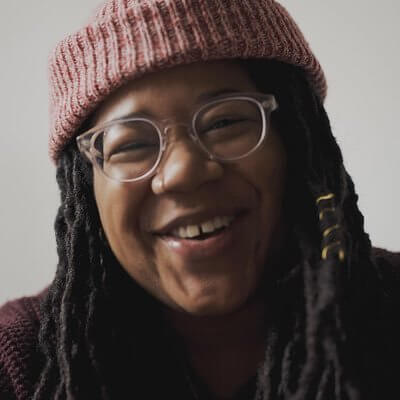By Madhusmita Bora
Increasingly, foundations and other philanthropic organizations are making grants and donations to media organizations. And in turn, media companies are becoming more reliant on these funds to deliver the content their audiences need – especially as advertisers tighten their purse strings in difficult economic times.
We asked a few foundations and philanthropies about how they are supporting BIPOC and Black-owned media. Here’s their response:
The Lenfest Institute for Journalism funds equity and representation in the local news industry and the Philadelphia news ecosystem, including grant and program support to WURD Radio. Since it is a public charity, it awards project-based grants to for-profit organizations – a distinction that has had a transformative impact as many legacy BIPOC media organizations are for-profit and have not had nonprofit grant revenue available to them. The Lenfest Institute also serves as a fiscal sponsor for BIPOC media organizations to receive funds from institutional donors.
The organization primarily supported BIPOC journalists through efforts such as the Lenfest Next Generation Fund, which provides resources to support professional development, equipment, and stipends for those seeking experience through unpaid internships in the Philadelphia Media Ecosystem. The Lenfest Fellows Internship program placed emerging journalists of color at The Philadelphia Inquirer in entry-level career-track positions to help facilitate the diversification of the newsroom, said Shawn Mooring, head of Philadelphia Programs. This initiative evolved into an ecosystem-wide effort, the Lenfest Constellation News Leadership Initiative, which provides mid-career journalists of color with a seven-month fellowship experience, provides a stipend, training delivered by the Newmark Journalism Program at CUNY, and also each fellow is provided a 1-1 Executive Advisor and a shared Leadership Coach. The most recent equity-focused initiative at the Lenfest Institute for Journalism is the Philadelphia Media Founders Exchange, a four-month cohort experience for media entrepreneurs of color working in or serving Philadelphia or the surrounding area. PMFE offers a bootstrapping boot camp curriculum provided by Black & Brown Founders, executive & peer coaching, and access to up to $30,000 in grant support for each fellow.
Through its Ecosystem, Lenfest Institute has awarded $1,467,630 to BIPOC-owned media organizations, Mooring said. An additional $705,000 was directed toward BIPOC Journalists working in the Philadelphia Media Ecosystem.
Other significant initiatives include Every Voice, Every Vote, a collaborative journalism and engagement effort in the run up to the 2023 municipal election, which awarded a total of $1,000,000 to media organizations. Of that total amount, $497,500 was awarded to BIPOC-Owned Media organizations.
The organization has also engaged in strategic funding partnerships with entities such as Meta (formerly Facebook) and the Knight-Lenfest Local News Transformation Fund to facilitate grants to news organizations nationwide. Through these strategic funding partnerships, Lenfest has awarded $2,792,481 to BIPOC-Owned Media organizations.
Independence Public Media Foundation
IPMF supports BIPOC-led media, projects and filmmakers through grantmaking, capacity building and networking. IPMF prioritizes hiring BIPOC- led organizations as consultants for their internal work.
“Last year our board agreed to center racial equity in our work, recognizing the harm media has caused to BIPOC communities and the opportunity to address that,” Nuala Cabral, program officer. “As a new foundation we are building our database to robustly capture the data about how much support goes directly to BIPOC, and Black-led organizations specifically. We intend to publish this data on our website later this year, in order to be transparent and accountable to the communities we seek to serve.”
Because it is a private foundation, IPMF is set up to make grants primarily to non profits. It has funded a few projects led by for profit BIPOC media organizations with non profit fiscal sponsors. WURD Radio and FunTimes Magazine are among the recipients.
The foundation said it has partnered with regional funders such as the Lenfest Institute, HealthSpark Foundation, Bread and Roses Fund, Leeway Foundation, and the Delaware Community Foundation to strengthen media-making and journalism across the region.
Ford Foundation
Historically, philanthropies mostly invested in the arts and culture, education and media. In recent years, as the economic model for journalism experienced shifts and mainstream media organizations became fragile, a growing number of foundations started investing in media, said Lolly Bowean, Program Officer at the Ford Foundation.
Foundations are supporting newsrooms as well as affinity groups such as Online News Association and the National Association of Black Journalists.
“Philanthropy doesn’t dictate what stories get told and we know that newsrooms operate independently, as they should,” Bowean said. “Yet we can offer support so that often overlooked issues, regions, and communities get covered and that journalists have the protections and training programs they need to do their jobs effectively.”
Ford Foundation said it supports communities underserved by mainstream media by investing in BIPOC-led media organizations. In the last five years, the organization gave $50 million in journalism-specific grants.
“We support Black-owned newsrooms that deliver information directly to the public like: MLK50 in Memphis; The Haitian Times in New York; The Triibe in Chicago; Our Body Politic based in Washington D.C.; Outlier Media in Detroit; and TransLash in New York,” Bowean said. “The value of these organizations is that they call attention to injustice but also offer pathways toward restoration and equity. They highlight stories of joy and resilience – not just narratives that center on violence, poverty and disparity.”
Much of the money is geared toward non profits. The number of for-profit media organizations that Ford supports is few. The foundation lends support for specific projects that are charitable and meet the IRS guidelines and criteria.
“We aim to ensure we are able to support in ways that meet the information needs of the public, and align with our mission to uplift inclusive and accessible journalism, but are not focused on profit making for the business,” Bowean said.
Ford supports WURD’s partner organization, Epicenter in New York, which became a crucial source of information for residents trying to find out where to get groceries, rental assistance, unemployment resources and health care during the height of the Covid-19 pandemic.
American Journalism Project funds nonprofit, local news organizations with the goal of rebuilding local news to serve and represent the full diversity of communities. AJP intentionally focuses on supporting BIPOC-led media.
“Our challenge ahead isn’t just in rebuilding what was lost, but in reimagining local news in service of all communities, especially communities of color,” said Sarabeth Berman, CEO of American Journalism Project. “ In particular, we’ve helped make major strides for Black-led news outlets; our startups work helped launch Capital B and Signal Ohio, and we have injected substantial growth funding into news organizations like Documented, Sahan Journal and Outlier Media.”
AJP doesn’t support for-profit news organizations.
This story is a collaboration between WURD Radio’s Lively-HOOD initiative and URL Media. It is part of a series called The Future of Work, which explores what work will look like as we move beyond the pandemic. It’s produced with funding from the William Penn Foundation and the Lenfest Institute for Journalism. WURD/Lively-HOOD is one of more than 20 news organizations producing Broke in Philly, a collaborative reporting project on solutions to poverty and the city’s push towards economic mobility.




